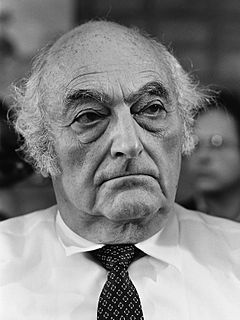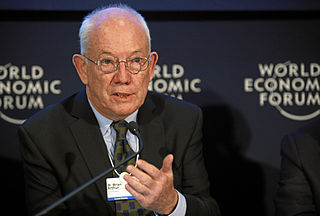A Quote by Robin Hahnel
We should know that only replacing the economics of competition and greed with the economics of equitable cooperation will guarantee a globalization that takes advantage of potential efficiency gains in ways that also promote environmental protection, international equity, economic democracy, and variety.
Related Quotes
When people are running up more and more debt for housing, they call that "real wealth." It exposes what's wrong in the mainstream economics and why most of the economics that justifies austerity programs and economic shrinkage is in the textbooks is not scientific. Junk economics denies the role of debt and denies the fact that the economic system we have now is dysfunctional.
As a multisport athlete, I was always fascinated with competition and how to win. At HBS and later at the Harvard Department of Economics, I was drawn to the field of competition and strategy because it tackles perhaps the most basic question in both business management and industrial economics: What determines corporate performance?
I am opposed to all forms of control; I am for an absolute laissez faire, free, unregulated economy. I am for the separation of the state and economics, just as we had separation of state and church, which led to peaceful coexistence among different religions...so the same applies to economics. If you separate the government from economics, if you do not regulate production and trade, you will have peaceful cooperation, and harmony and justice among men.
For a variety of reasons, I have always felt myself an outsider. I don't know how to classify myself in economics. I am a loner. I do not like groupthink, which, if anything, has become more important in economics. In addition, a lot of the values I hold are not the mainstream values in the profession.
How should the best parts of psychology and economics interrelate in an enlightened economist's mind?... I think that these behavioral economics...or economists are probably the ones that are bending them in the correct direction. I don't think it's going to be that hard to bend economics a little to accommodate what's right in psychology.
Classical economics values things by seeing how much someone will pay for them. But this is where classical economics is wrong. What it fails to account for are all the 'externalities' - the services people regard as free goods: pollination services, flood protection, climate regulation, soil stabilization, carbon sequestration.
I also believe - and hope - that politics and economics will cease to be as important in the future as they have been in the past; the time will come when most of our present controversies on these matters will seem as trivial, or as meaningless, as the theological debates in which the keenest minds of the Middle Ages dissipated their energies. Politics and economics are concerned with power and wealth, neither of which should be the primary, still less the exclusive, concern of full-grown men.




































